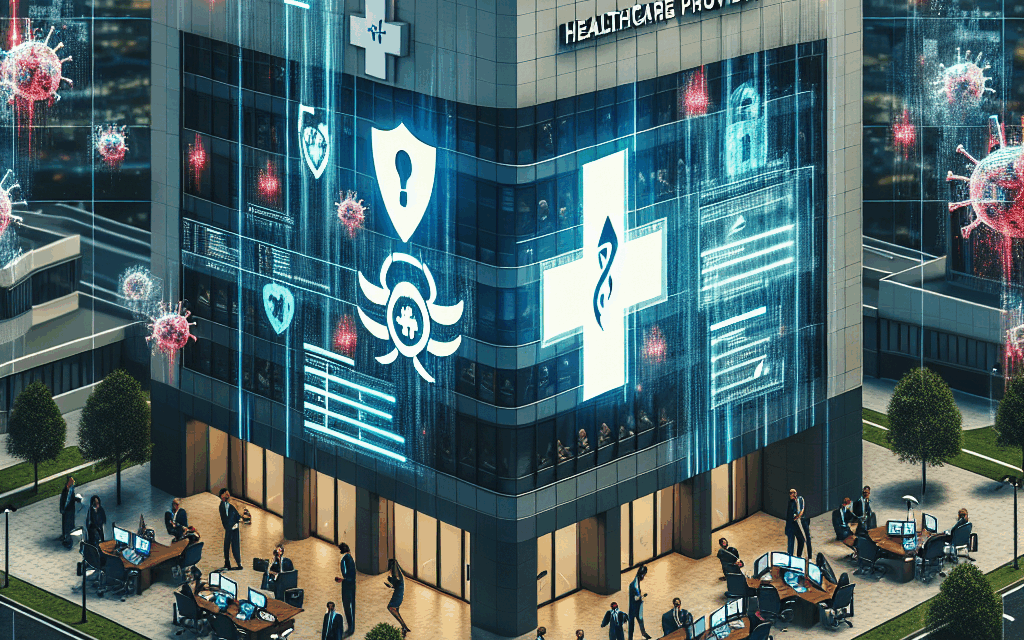Kettering Health in Ohio Faces Cyberattack Crisis
The healthcare sector has increasingly become a target for cyberattacks, and Kettering Health in Ohio is no exception. In recent months, the organization has faced a significant cyberattack crisis that has raised concerns about patient data security, operational integrity, and the overall resilience of healthcare systems against cyber threats. This article delves into the details of the cyberattack, its implications, and the broader context of cybersecurity in healthcare.
Understanding the Cyberattack on Kettering Health
In early 2023, Kettering Health reported a cyberattack that compromised its IT systems, leading to disruptions in services and potential exposure of sensitive patient information. The attack was characterized by ransomware, a type of malware that encrypts files and demands payment for their release. This incident is part of a troubling trend in which healthcare organizations are increasingly targeted by cybercriminals.
Ransomware attacks have surged in recent years, with the healthcare sector being particularly vulnerable due to its reliance on digital systems for patient care and record-keeping. According to a report by Cybersecurity Ventures, ransomware attacks are expected to occur every 11 seconds by 2021, and the healthcare industry is one of the most affected sectors.
The Kettering Health cyberattack involved unauthorized access to its network, which led to the encryption of critical data. The organization quickly initiated its incident response plan, which included notifying law enforcement and engaging cybersecurity experts to assess the damage and restore systems. However, the attack raised significant concerns about the adequacy of Kettering Health’s cybersecurity measures and the potential impact on patient care.
The Impact on Patient Care and Operations
The cyberattack on Kettering Health had immediate and far-reaching consequences for patient care and operational efficiency. As systems were taken offline to contain the breach, many services were disrupted, leading to delays in patient appointments, surgeries, and other critical healthcare services.
One of the most significant impacts was on the electronic health record (EHR) system, which is essential for maintaining patient information and coordinating care. With the EHR system compromised, healthcare providers faced challenges in accessing patient records, leading to potential risks in treatment decisions. For instance, without access to a patient’s medical history, providers may have difficulty prescribing medications or identifying allergies, which could jeopardize patient safety.
Moreover, the disruption in services extended beyond direct patient care. Administrative functions, such as billing and scheduling, were also affected, leading to financial implications for the organization. The inability to process claims and manage appointments resulted in revenue loss and increased operational costs as Kettering Health worked to restore its systems.
In response to the crisis, Kettering Health implemented contingency plans, including the use of paper records and manual processes to ensure continuity of care. However, these measures were not without challenges, as staff had to adapt quickly to a less efficient system while maintaining high standards of patient care.
Legal and Regulatory Ramifications
The cyberattack on Kettering Health also raised significant legal and regulatory concerns. Healthcare organizations are subject to strict regulations regarding the protection of patient data, particularly under the Health Insurance Portability and Accountability Act (HIPAA). A breach of patient information can lead to severe penalties, including fines and legal action from affected individuals.
In the aftermath of the cyberattack, Kettering Health faced scrutiny regarding its compliance with HIPAA regulations. The organization was required to conduct a thorough investigation to determine the extent of the breach and assess whether it had taken adequate measures to protect patient data. This investigation involved notifying affected patients, which is a legal requirement under HIPAA when a breach occurs.
Additionally, Kettering Health may face lawsuits from patients whose data was compromised during the attack. Legal experts suggest that the organization could be held liable for failing to implement sufficient cybersecurity measures to protect sensitive information. This potential liability underscores the importance of robust cybersecurity practices in the healthcare sector.
Furthermore, the incident has prompted discussions about the need for stronger regulatory frameworks to protect healthcare organizations from cyber threats. Policymakers are increasingly recognizing the importance of cybersecurity in healthcare and may consider implementing stricter regulations to ensure that organizations prioritize data protection.
Lessons Learned and Future Preparedness
The cyberattack on Kettering Health serves as a critical case study for healthcare organizations across the country. It highlights the vulnerabilities that exist within the sector and the urgent need for improved cybersecurity measures. In the wake of the attack, Kettering Health has taken steps to enhance its cybersecurity posture and prevent future incidents.
One of the key lessons learned is the importance of investing in cybersecurity training for staff. Human error is often a significant factor in cyberattacks, and organizations must ensure that employees are aware of potential threats and equipped to respond appropriately. Kettering Health has implemented training programs to educate staff about phishing attacks, password management, and safe online practices.
Additionally, Kettering Health has prioritized the adoption of advanced cybersecurity technologies, such as intrusion detection systems and encryption protocols. These technologies can help detect and mitigate threats before they escalate into full-blown attacks. The organization is also working to establish a comprehensive incident response plan that outlines clear procedures for responding to future cyber incidents.
Collaboration with external cybersecurity experts is another critical component of Kettering Health’s strategy. By partnering with specialized firms, the organization can leverage expertise in threat detection and response, ensuring that it remains vigilant against emerging cyber threats.
The Broader Context of Cybersecurity in Healthcare
The cyberattack on Kettering Health is part of a larger trend affecting the healthcare industry as a whole. According to a report by the Ponemon Institute, 89% of healthcare organizations experienced a data breach in the past two years, highlighting the pervasive nature of cyber threats in the sector. The increasing digitization of healthcare services, coupled with the rise of telehealth and remote patient monitoring, has created new vulnerabilities that cybercriminals are eager to exploit.
Healthcare organizations must navigate a complex landscape of regulatory requirements, technological advancements, and evolving cyber threats. The stakes are high, as a successful cyberattack can compromise patient safety, disrupt operations, and lead to significant financial losses.
Moreover, the COVID-19 pandemic has accelerated the adoption of digital health solutions, further increasing the attack surface for cybercriminals. As more healthcare services move online, organizations must prioritize cybersecurity to protect sensitive patient information and maintain trust with their patients.
In response to these challenges, industry stakeholders are advocating for a collaborative approach to cybersecurity. This includes sharing threat intelligence, best practices, and resources among healthcare organizations to strengthen collective defenses against cyber threats. Initiatives such as the Health Information Sharing and Analysis Center (H-ISAC) aim to facilitate collaboration and information sharing within the healthcare sector.
Conclusion: A Call to Action for Healthcare Cybersecurity
The cyberattack crisis faced by Kettering Health serves as a stark reminder of the vulnerabilities that exist within the healthcare sector. As cyber threats continue to evolve, healthcare organizations must prioritize cybersecurity to protect patient data, ensure operational integrity, and maintain trust with their patients.
Key takeaways from this incident include the importance of investing in cybersecurity training for staff, adopting advanced technologies, and collaborating with external experts to enhance defenses. Additionally, organizations must remain vigilant in their compliance with regulatory requirements and be prepared to respond effectively to potential breaches.
As the healthcare industry grapples with the challenges of cybersecurity, it is essential for stakeholders to come together to share knowledge and resources. By fostering a culture of cybersecurity awareness and collaboration, healthcare organizations can better protect themselves against the growing threat of cyberattacks.
In conclusion, the Kettering Health cyberattack is not just an isolated incident; it is a wake-up call for the entire healthcare sector. The time for action is now, and organizations must take proactive steps to safeguard their systems and protect the sensitive information of their patients.





